Intro
Unlock a rewarding career as a Sterile Processing Technician. Discover 7 actionable tips to increase your chances of landing a job in this in-demand field. Learn how to showcase your skills, network effectively, and tailor your application to stand out in a competitive market, and get hired as a Certified Sterile Processing Technician.
Sterile processing technicians play a vital role in the healthcare industry, ensuring that medical instruments and equipment are properly cleaned, sterilized, and prepared for use in patient care. With the increasing demand for healthcare services, the job market for sterile processing technicians is growing rapidly. However, landing a job in this field can be competitive. In this article, we will explore seven ways to increase your chances of landing a sterile processing technician job.
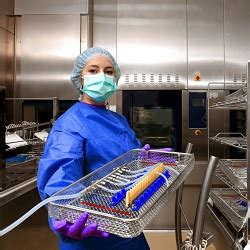
Meet the Basic Requirements
To become a sterile processing technician, you must meet certain basic requirements. These typically include:
- A high school diploma or equivalent
- Completion of a sterile processing technician training program
- Certification as a sterile processing technician (CSPDT) or registered central service technician (RCST)
- Basic life support (BLS) certification
Education and Training
While a high school diploma is the minimum educational requirement, many employers prefer candidates with a post-secondary certificate or degree in sterile processing technology. These programs are usually offered at community colleges or vocational schools and take about a year to complete. They cover topics such as:
- Sterilization and disinfection methods
- Instrument processing and handling
- Quality control and assurance
- Patient safety and infection control
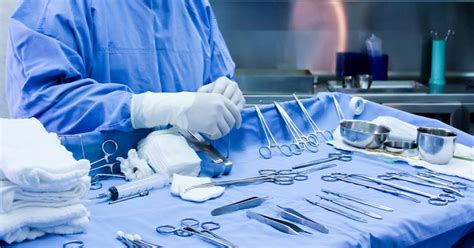
Gain Practical Experience
Practical experience is essential for becoming a skilled sterile processing technician. Many training programs include internships or clinical rotations that provide hands-on experience in a healthcare setting. You can also gain experience by volunteering or interning at a hospital or healthcare facility.
Build a Strong Foundation in Infection Control
Infection control is a critical aspect of sterile processing. To increase your chances of landing a job, focus on building a strong foundation in infection control principles and practices. This includes:
- Understanding the chain of infection
- Knowing how to properly clean and disinfect surfaces and equipment
- Familiarity with sterilization methods and protocols
- Knowledge of patient safety and infection control policies and procedures
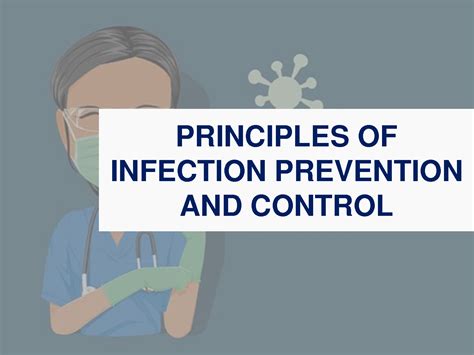
Develop Strong Communication and Teamwork Skills
Sterile processing technicians work closely with other healthcare professionals, including nurses, doctors, and surgical technologists. To succeed in this role, you must have strong communication and teamwork skills. This includes:
- Effective communication with colleagues and supervisors
- Ability to work collaboratively as part of a team
- Strong problem-solving and critical thinking skills
Stay Current with Industry Developments
The sterile processing industry is constantly evolving, with new technologies and techniques emerging regularly. To stay competitive, it's essential to stay current with industry developments. This includes:
- Attending conferences and workshops
- Participating in online forums and discussion groups
- Reading industry publications and journals
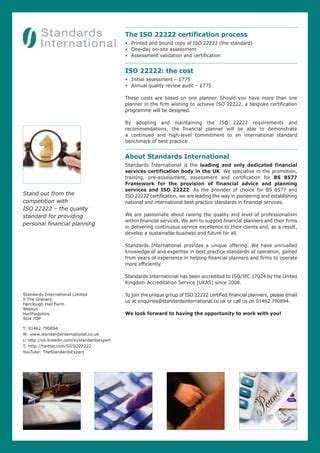
Network and Join Professional Associations
Networking and joining professional associations can help you connect with other sterile processing technicians and stay informed about job opportunities. Some professional associations to consider include:
- The International Association of Healthcare Central Service Materiel Management (IAHCSMM)
- The American Society for Healthcare Central Service Professionals (ASHCSP)
- The Sterile Processing Association (SPA)
Build a Strong Resume and Cover Letter
A strong resume and cover letter are essential for landing a sterile processing technician job. Make sure to highlight your education, training, and experience in sterile processing, as well as your skills in infection control, communication, and teamwork.
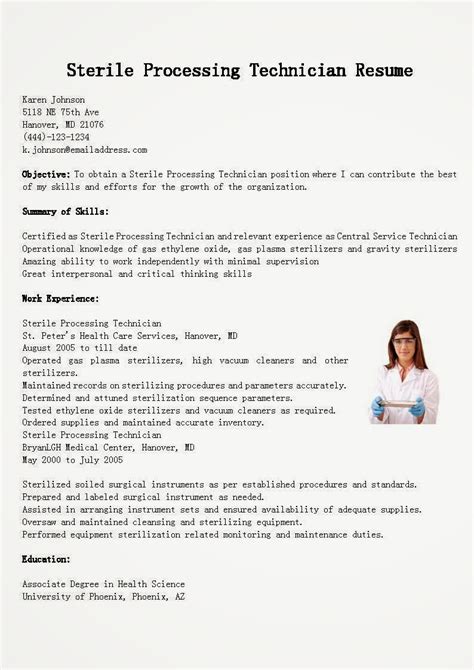
Prepare for Common Interview Questions
To increase your chances of landing a job, prepare for common interview questions in sterile processing. Some examples include:
- What is your experience with sterilization and disinfection methods?
- How do you ensure patient safety and infection control in your work?
- Can you describe a time when you had to troubleshoot a problem in the sterile processing department?
Practice Your Interview Skills
Practice your interview skills by preparing answers to common questions and participating in mock interviews. This will help you feel more confident and prepared for your actual interview.
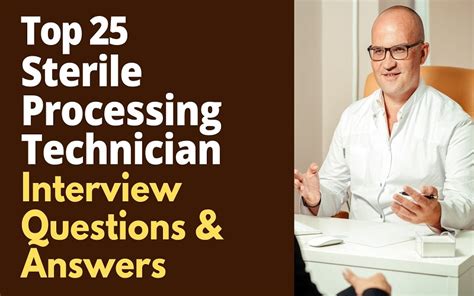
By following these seven ways to land a sterile processing technician job, you can increase your chances of success in this rewarding and challenging career.
We encourage you to share your thoughts and experiences in the comments section below. Have you landed a sterile processing technician job? What tips and strategies worked for you?
What is the average salary for a sterile processing technician?
+The average salary for a sterile processing technician varies depending on location, experience, and employer. However, according to the Bureau of Labor Statistics, the median annual salary for sterile processing technicians is around $43,000.
Do I need a certification to become a sterile processing technician?
+While certification is not always required, it is highly recommended. The Certified Sterile Processing Technician (CSPDT) and Registered Central Service Technician (RCST) certifications are two of the most common certifications in the field.
What are the most common industries that hire sterile processing technicians?
+The most common industries that hire sterile processing technicians include hospitals, surgical centers, clinics, and medical device manufacturers.
